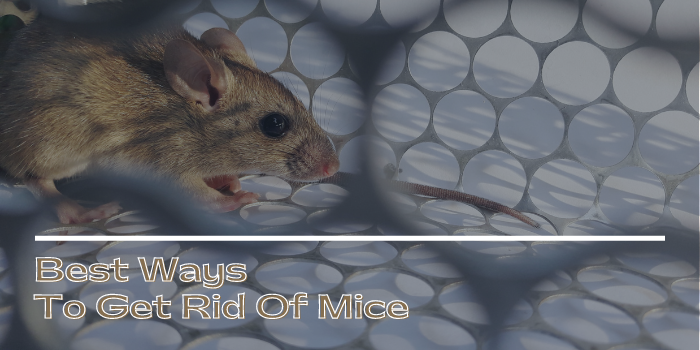
Mice are small, cute rodents. While they’re kept as pets in some places, they’re unwanted roommates for most people. The rodents usually migrate into people’s homes in search of shelter, warmth, and food, especially during the fall and winter months.
Often, mice also cause damage by chewing on toys, books, wires, or getting into your food boxes in kitchen cabinets and spoiling whatever you’ve stored away, or gnaw on plastic containers and storage bags.
Not only that, but mice also leave their feces and urine, which carry a slew of viruses and bacteria thereby spreading diseases. All these together can worsen allergies and asthma while wreaking havoc on your home and personal health.
Whether you’re living in the city or countryside, mice are part of the undesirable guests you’ll have to contend with. If you find that you’re suddenly sharing your home with one or more mice, this guide explains the best ways to get rid of them.
Before taking any precautionary measures, we’ll share the signs that you have a mouse in the house and why you should care.
Later on in this guide, we’ll explain how to prevent an infestation, whether you have mice or not, to keep these pesky rodents away for good.
[lwptoc skipHeadingLevel=”h1,h4,h5,h6″]
Signs That There’s A Mouse In Your Home
There are many signs of a mouse infestation that you need to know of, especially in crawl spaces, attics, and other areas of your dwelling you visit infrequently.
Mice tend to be active between dusk and dawn, though you can still spot evidence of their activity in your home at any time. Plus, they tend to avoid open spaces and move along walls, gnawing at drywall and similar materials.
Here are some of the main signs that you have a mouse in the house:
- Mice droppings (little black pellets – a few meters long)
- Distinct and unpleasant smell
- Strange grease markings on your walls that resemble handprint smudges
- Holes and debris in the dark corners of your laundry room or kitchen
- Caches of birdseed and pet food in unexpected places like behind furniture or appliances and other undisturbed areas of your home
- Nests of paper and other fibrous material in water heaters, ovens, refrigerators, and other sheltered spots near constant heat
Why You Need To Get Rid Of Mice
Besides being an unhealthy addition to your home, mice are a health concern as they pose real health issues including spreading disease and triggering asthma.
Plus, mice tend to carry salmonella and other foodborne diseases. They nosh on the same foods that pets and people do, so they can spread diseases onto your meal preparation surfaces and food.
On top of that, mice can spread Hantavirus that leads to Hantavirus pulmonary syndrome, and lymphocytic choriomeningitis, all of which can be fatal. Other diseases mice can spread especially through bites include salmonellosis, leptospirosis, plague, pox, and typhoid among others.
Once you find a mouse, don’t try to cohabitate with the rodent. Take action otherwise, the infestation will grow and since mice reproduce rapidly, you may find yourself having to contend with multiple generations of rodents.
While you can treat most of these diseases, it’s better to prevent them by avoiding direct contact with mice and their droppings. Read on to find out how to get rid of mice and keep your home clean and disease-free.
Best Ways To Get Rid Of Mice
If you’re sure you have mice in your home and you’ve identified their preferred locations around the house, try any of these 15 best ways to get rid of them from your home before calling an exterminator.
1. Eliminate Food, Water, And Shelter
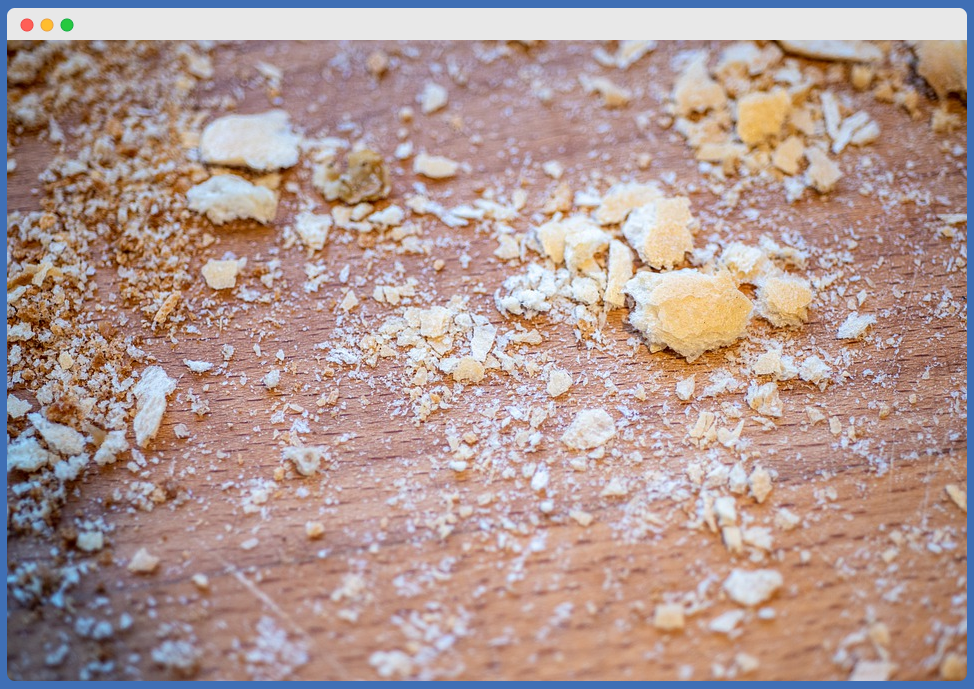
If your home has a constant supply of food, water, and shelter, it’s an attractive crash pad for mice and other tiny unwanted guests.
The first step to getting rid of the mice is to cut off these three things by dealing with any water leaks and cleaning up any food crumbs or debris on surfaces and floors.
You can also store food in places where mice can’t reach like sturdy glass or plastic food boxes and your refrigerator.
2. Close Up The Mouse Holes And Entries
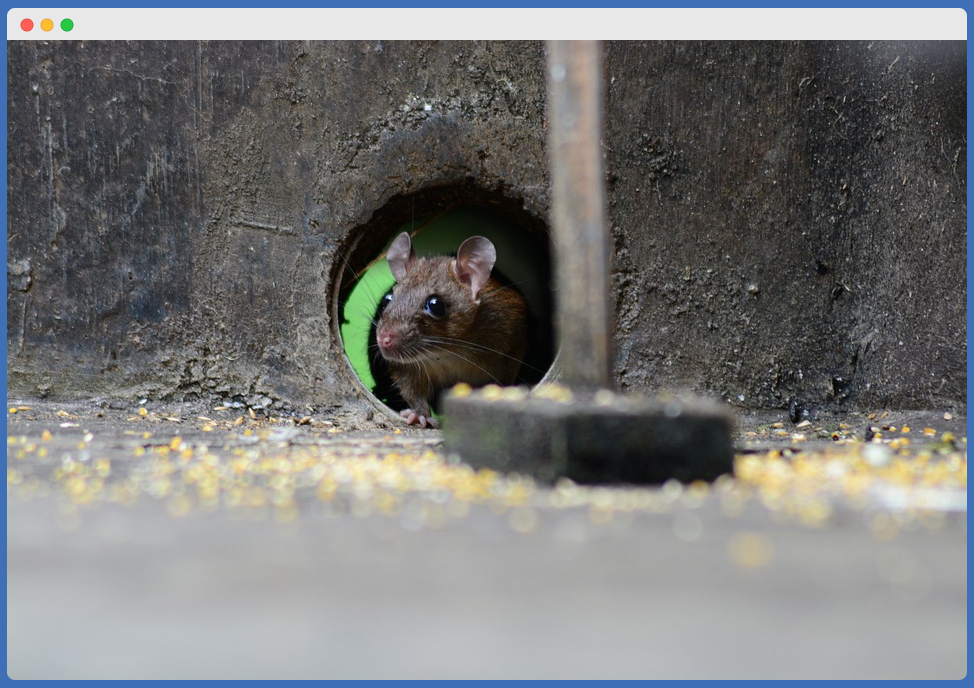
Now that you’ve kept all your food away from the reach of any mice and you’ve checked that there aren’t any water leaks, it’s time to seal up the holes that allow mice to get into your home.
You can bar the door and other entrances like the door sweeps or barriers to exterior doors among other unconventional entrance/exit points.
If you see a mouse, follow where it runs and check for any cracks or holes. As a rule of thumb, if you can stick an old pencil into a hole, mice can get through it because mice have tiny skulls about the width of a pencil.
Check for holes around any wires or pipes and fill them with high-quality, durable materials, which will save you a lot of work. Such materials include stainless steel, silicone caulk, or copper mesh to block the holes. Silicon is more durable than caulk while stainless steel, copper, and steel wool don’t rust.
3. Use A Humane Mouse Trap
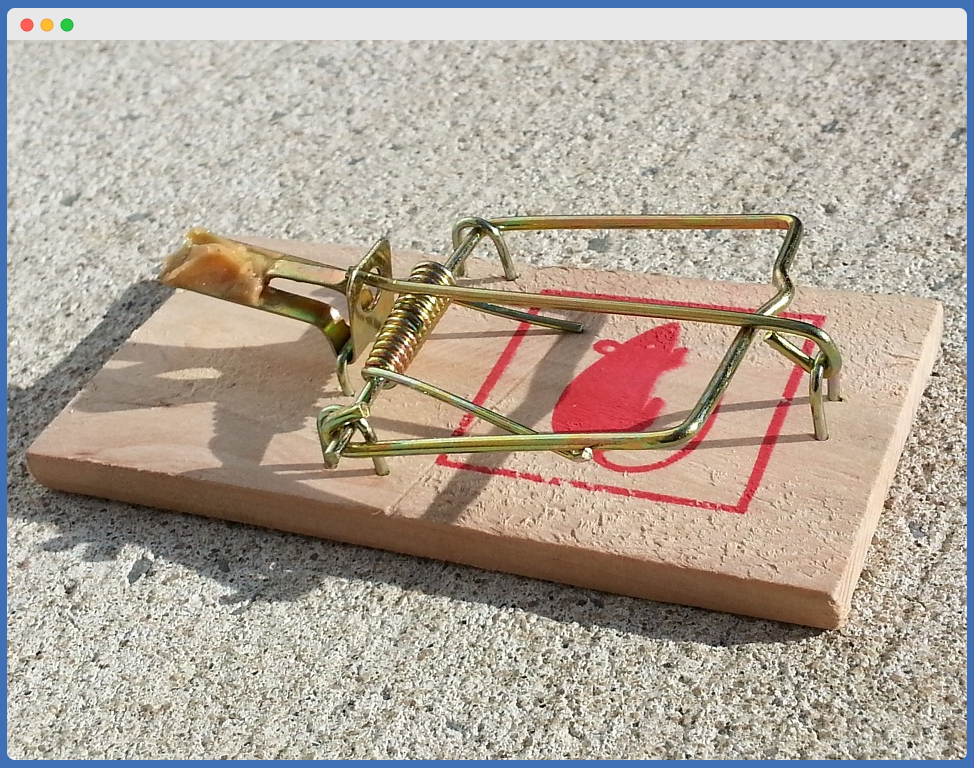
You’ve cleaned up, stored food away, and sealed up any holes in your home, but there are still some mice lurking within. At this point, you need to catch the mice and get rid of the remaining stalwarts.
You can’t snatch the mice up and throw them outside but if you have a trap baited with sweet snacks like dried fruit, oats, or peanut butter, you can get them to come to you.
A simple wood and wire snap trap is effective, works fast, can be reused, and is cheap. When in doubt, you can go with such a snap trap or use a modern plastic snap trap that looks like a binder clip but is easier to set up and use.
If you keep pets, make sure the mouse snap traps are outside of their reach or place a sturdy box with a hole the size of a mouse along the wall and over the trap. This way, the mouse will reach the bait and your pet will be safe from any possible harm.
You can also use glue traps that you can find at your nearest local supermarket or hardware store. These are relatively inexpensive and help trap smaller mice because they get stuck and die of starvation. For larger mice, a larger trap may help as they tend to free themselves from the glue traps easily.
4. Get Electric Box Trap
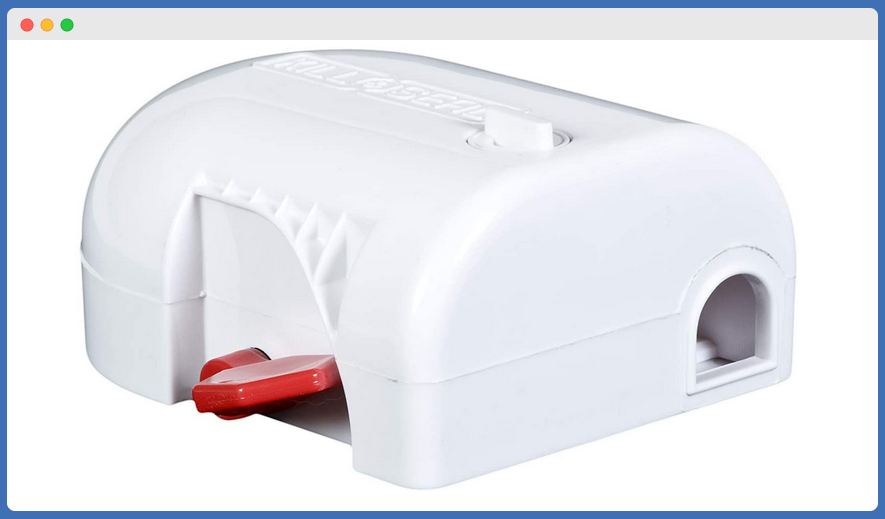
You can also use an electric box trap and bait it as you would with a snap trap. Electric box traps are battery-powered machines with an opening that a mouse can run into as they try to get the bait.
Once the mouse gets into the electric box trap, it will step on a plate with a current and get instantly electrocuted. A small light will flash to indicate that the mouse has been trapped and that the trap needs to be reset.
Unlike snap traps, electric box traps help you when you have pets in your homes because they’re completely enclosed so your pet won’t get to the charged plate. Plus, they also leave less mess than snap traps, making them easier to clean, but you have to keep the batteries charged regularly.
5. Get A Cat

Cats love hunting mice, though some dogs love to get in on the fun. Any pets in your home may be the best way to catch the mice hiding within without lifting a finger, but if you don’t have any, you can stop them from reproducing by getting a cat.
If no one has cat allergies, visit your local animal shelter and adopt or foster a cat. Naturally, cats love to hunt mice when confronted with them, plus, you still get to keep the warm and fluffy cat long after the mice are gone.
6. Use Essential Oils

Essential oils may smell good to humans, but to mice, they’re repellents. The strong smell of clove or peppermint oil tends to repel the rodents, so you can saturate some cotton balls with the oils and put them in areas like cupboards, drawers, and home entryways that attract mice.
The smell alone may not completely get rid of the mice, but you can add other methods along with the oils in order to deter the mice naturally.
7. Hot Pepper
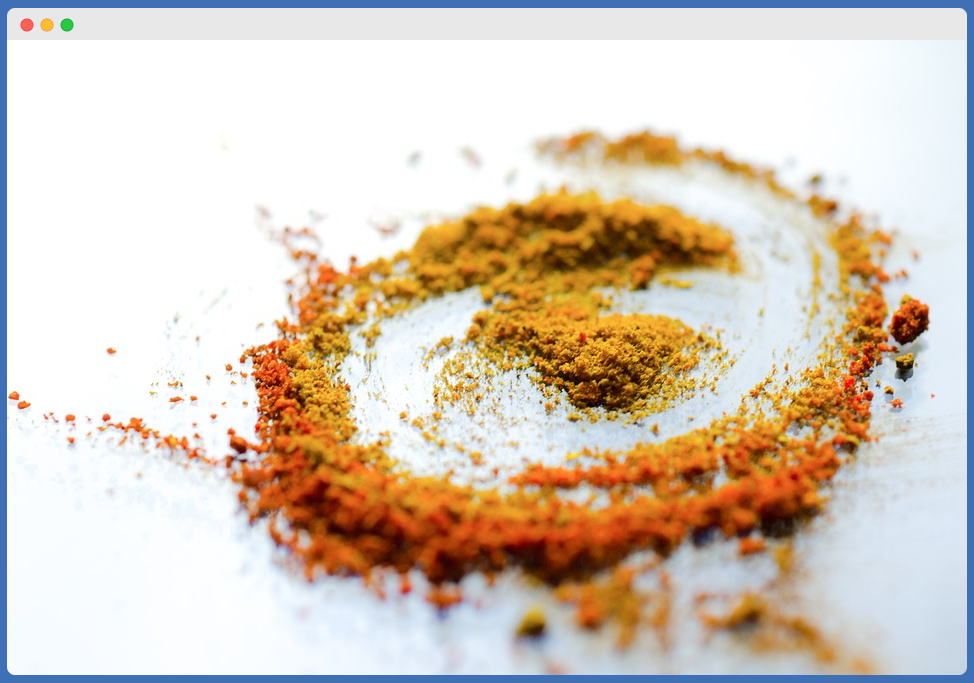
Poison baits and other mouse traps may seem easy but they’re also risky. They can sicken children or pets in your home. You’re better off with baits and treatments that are safer and nonpoisonous like a hot pepper solution.
Make some concentrated hot pepper and spray it in spots where mice visit frequently like behind cabinets or under the stove. Make sure you keep these sprays out of the reach of pets and children.
8. Use Kitty Litter

Mice know the smell of cat waste and when it’s anywhere near your home, they’ll stay from it. Scoop some used kitty litter and scatter it around your home’s perimeter.
Alternatively, you can go to your nearest pet store and pick some dried snake poop if you don’t have cat waste.
Place the waste products in containers out of the reach of your pets and children so they don’t play with the mess.
9. Pesticides

While you may find shelves in home improvement stores lined with many poisons that help eliminate mice, some mice may be resistant to anticoagulant or arsenic poisons like warfarin.
In addition, rodent poison is extremely toxic to living things including animals and human beings so you shouldn’t use it around pets or children.
They may eat it and become ill or even die so before you pick up a box of pellets or pesticides, think twice about this option or use it as a last resort.
10. Cut off shrubbery
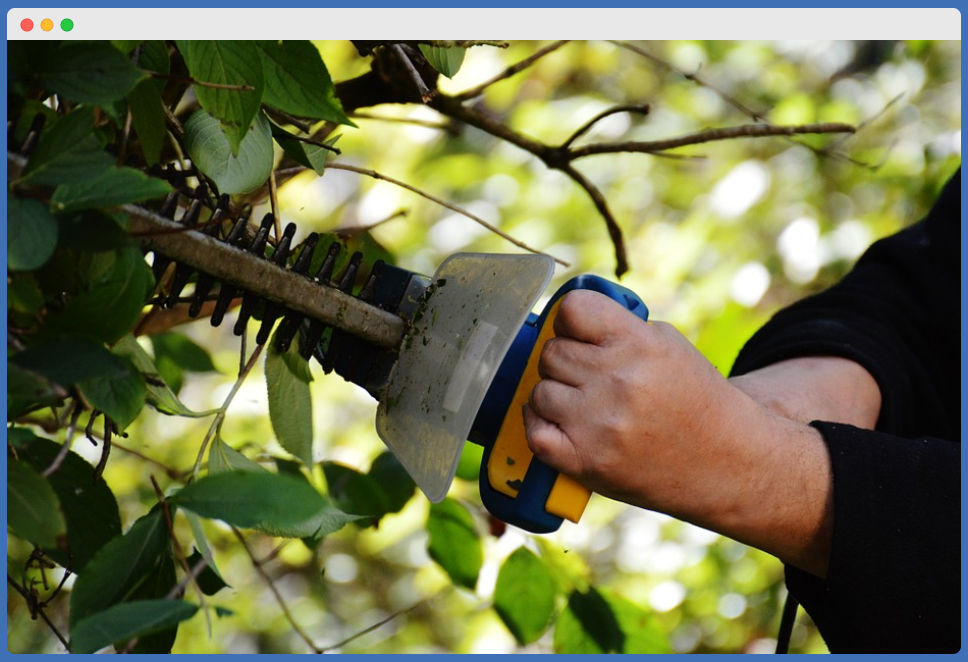
Mice love to hide in the shrubbery around your home which makes it the perfect spot for them to lurk as they wait to get in.
To prevent this, cut off the highway to the house by pruning shrubbery and branches away from your dwelling.
Plus, if you have any firewood stacked near your home, keep it at least 20 feet from the house as mice tend to hide and nest in such piles.
11. Keep the trash can sealed
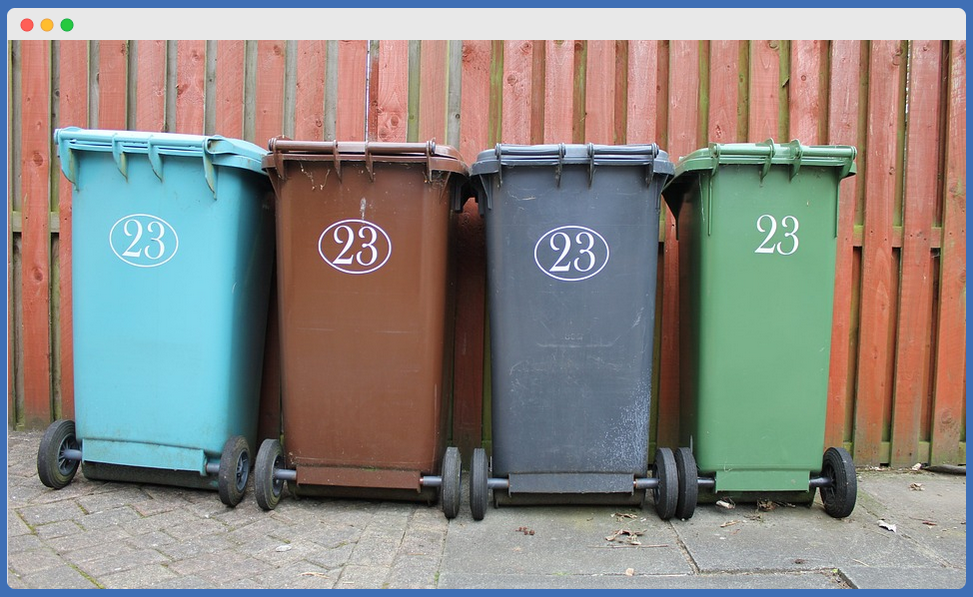
You can get a mouse-proof trash can or seal the trash can you have to ensure it has an airtight lid and doesn’t give the mice any room to get in.
Mice love trash cans as they can find some food and shelter, so make sure it’s tightly shut. If you have rubber cords, you can use them to keep your trash can shut and keep the mice out.
12. Use mashed potatoes
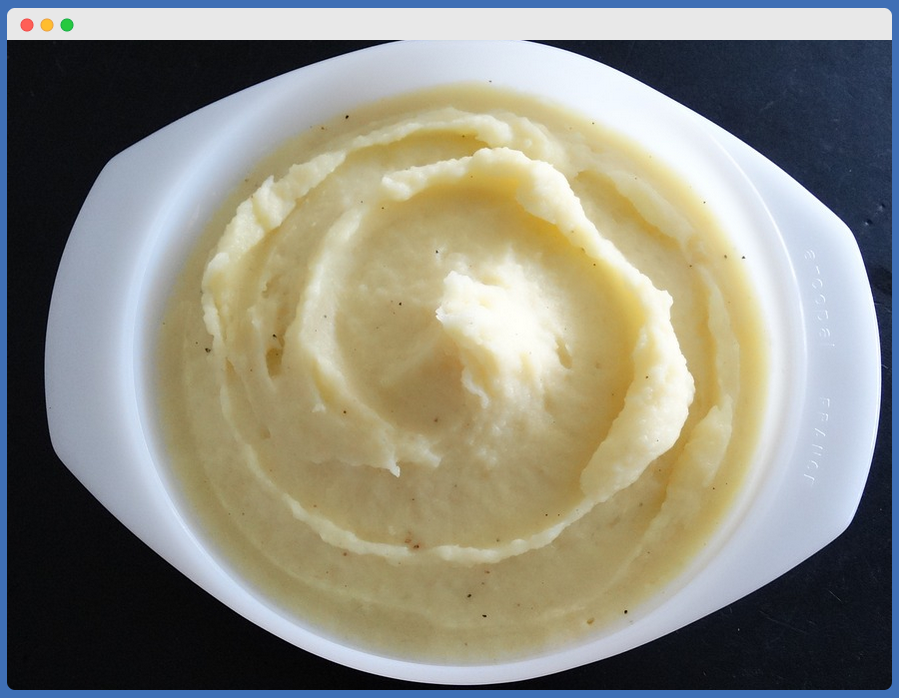
Mashed potatoes can help kill mice too. Get a pack of some Yukon Gold instant potato flakes and mix it with some milk and butter. If you know where the mice hide or you’ve seen traces of their pellets that could lead to their hideout, sprinkle the mashed potatoes around those areas.
Once the mice eat the mashed potatoes, their little stomachs will expand and they’ll die. However, you need to be cautious about using this method especially if you have fur babies in your home.
13. Powdered Chocolate Milk Mix and Plaster of Paris

While this method may seem strange or funny, it does work. Mix the chocolate milk mix powder to dry Plaster of Paris and ensure you leave it wherever you’ve noticed the mice pellets or the mice themselves.
Mice will eat up the mixture quickly because of the chocolate and the Plaster of Paris in the mixture will dehydrate them.
Hopefully, you’ve already fixed any water leaks and kept any water sources out of reach for mice because if they lack water they’ll either die or head out to look for it elsewhere.
14. Use Ammonia
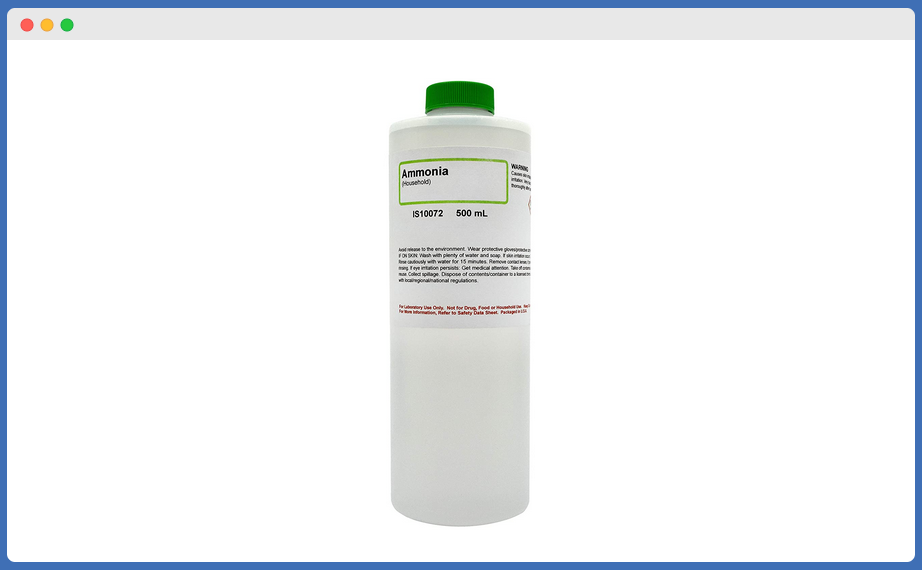
Mice hate ammonia because it smells like the urine of a possible predator. To use ammonia around the home, fill caps from any plastic bottles or containers you have with ammonia and then leave them in a place where the mice like to hideout or may be tempted to enter.
These may be under the sink or the pantry, but you need to keep the ammonia out of the reach of children and pets.
15. Call The Exterminator
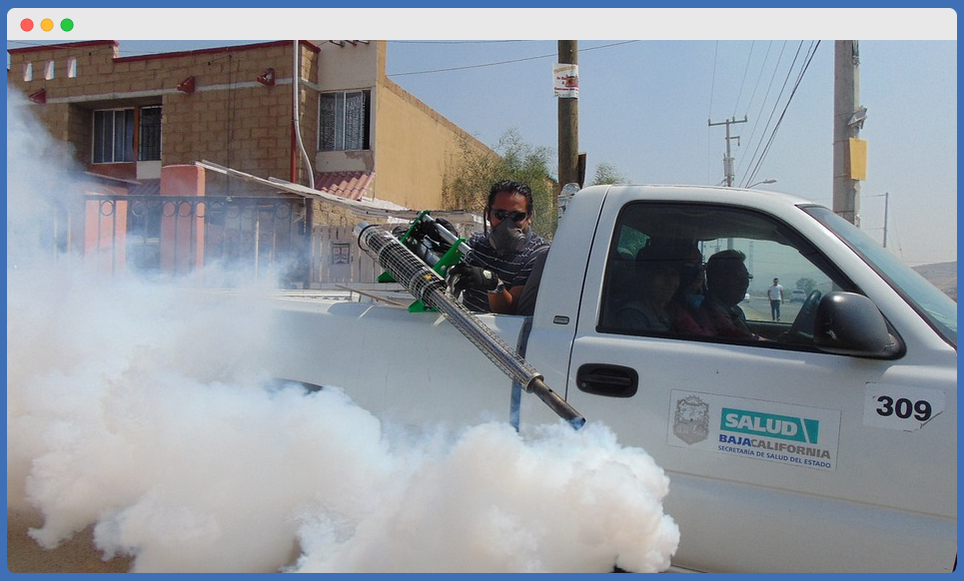
You’ve tried all you can to get rid of mice in your home but they still show up. It’s time to call the professional pest control people – exterminators.
An exterminator is a mouse control specialist who is trained to help eliminate mice in any environment and prevent any future infestations. You should seek one for their training, knowledge, and expertise in successfully managing mice around the home.
The exterminator eliminates mice from the home using all the above methods but there’s a unique one called fumigation that helps if the infestation is severe enough. This can only be done by a professional and is a last resort.
However, in some areas, it’s illegal to fumigate your home, so you can only use fumigants in warehouses, grain storage structures, outdoor burrows, and train cars.
If fumigation is legal in your area, you need to stay away from your home for several days so that the exterminator has time to spray the poison and wipe out all the mice residing in your house.
The process is also expensive and dangerous, plus you’ll need to clean your surfaces and counters thoroughly after things have settled down just to ensure they’re safe to use.
Exterminators use fumigant chemicals including Magnesium Phosphide, Aluminum Phosphide, Carbon Dioxide, Methyl Bromide, Sulfuryl Fluoride, Chloropicrin, Phosphine, Methyl Isocyanate, 1,3-Dichloropropene, Hydrogen Cyanide, and Formaldehyde.
If you’re considering fumigation, here are some things to take into account:
- Find someplace else to stay with your family as your home is fumigated or plan your fumigation around your days off such as the weekend.
- If you have a gas company, notify them that you plan to fumigate your home so that they turn off the gas before you start the process. Also, unplug any electric heaters and air conditioning units in the home before you leave.
- Leave all doors in the home open because the fumigant needs to spread throughout so as to kill rodents and not give them space to hide. Such spaces include kitchens, basements, attics, and bathrooms. Leave your closets, cabinets, and drawers open also.
- Seal all your food and consumables in air-tight containers including items in the fridge that aren’t stored securely.
- Give the exterminator access to your home by leaving a copy of your keys for secure entry and work with them to plan for safe storage of your keys and pick-up after fumigation is done.
How To Prevent Future Mice Infestations
There are several things some people do to get rid of mice that may be a bad idea. For instance, using mouse poison in the walls of your home is a bad idea because the mice will die inside there, and getting them out is harder.
You need to do it properly as the poison may not only kill mice but also any animals that may feed on mouse carcasses and poison your pets inadvertently.
To prevent future mice infestations, here are some of the things you can do:
- Once you’ve covered all the access points to your water, food, and home, sealed the exits or entrances, and killed any mice that may have been hiding, it’s time to clean the home.
- Get disposable gloves or sturdy leather gloves and a plastic bag to keep any mice that died and put the remains far from the home where any pet may not be likely to bring back in.
- Wear a face mask and clean any droppings or mouse urine or spray them with diluted bleach before you wipe up the waste.
- Wash any garments or bedding that mice may have pooped on and wash your hands.
- Make sure all the eating in your home is done at the table to prevent any spills or crumbs scattered all over the place that may attract mice.
- Store seeds, grains, flour, and beans among other dry foods in air-tight glass or metal containers.
- Wipe surfaces where you eat or cook at the end of the day and vacuum any bits that may fall under furniture, the floor, or around your cooker and other appliances.
- If you have a pet, remove its food bowl after meals and seal its food bags.
Wrapping Up
Learning how to get rid of mice in your home begins with simple choices around how you want to do it. It may be as simple as using a mouse trap or as complicated as getting an exterminator to fumigate the home.
However you want to do it, make sure it’s humane and will keep your family and pets out of danger. Any of these 15 best ways will help you face the disease-carrying rodents and eliminate them from your home for good.
Enjoyed 15 Best Ways To Get Rid Of Mice? Share it with your friends so they too can follow the mybodyexpert journey.
Share on Pinterest
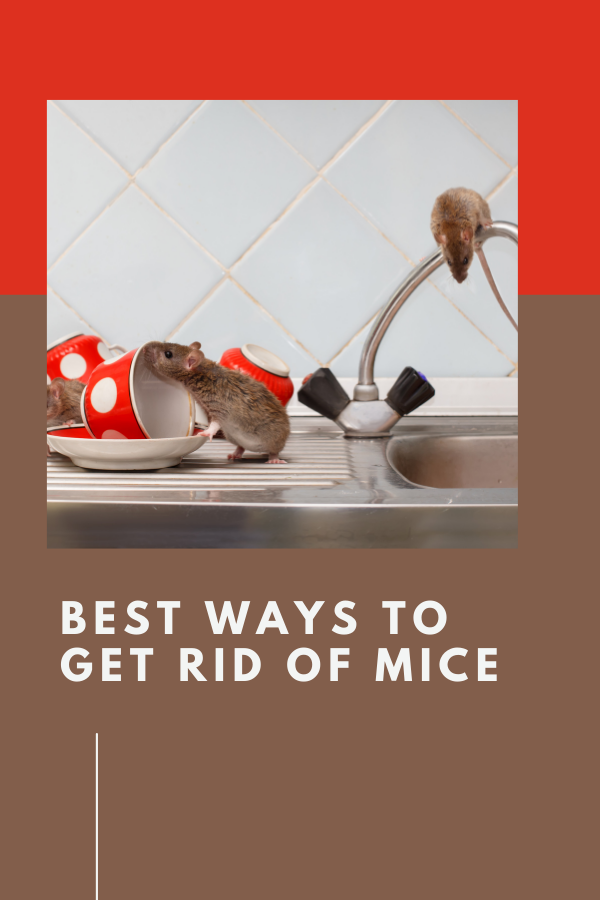

Diana Paul is a certified nutritionist who writes for leading health blogs. She is a master herbalist, yoga teacher, forager, and wild-crafting writer She is focused on helping people transform life blocks to opportunities. Based in NYC, she often holds health seminars and lectures.
